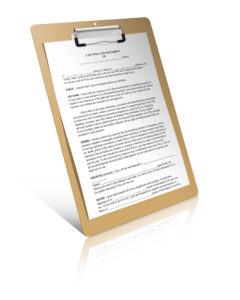I visited with a terrific couple during a recent Florida estate planning consultation and they asked me what I consider to be a very valid question. An acquaintance of theirs, probably during a dinner party, had “spouted off” about how he had just created his own “do-it yourself” DIY last will and testament from a “form” obtained at a major office supply store. This conversation included some boasting about the cost effectiveness and simplicity of his estate plan.
The question that resulted for the clients was whether “a DIY last will and testament a good idea for a simple estate?”
The Problem with DIY Estate Planning Documents in General
Asking An Experienced Estate Planning Lawyer Why You Shouldn’t “Do Your Own Will” Is Like Asking An Experienced Electrician Why You Shouldn’t Rewire Your Own House?
There are numerous pitfalls for the novice attempting DIY estate planning in Florida to be aware. I could spend hours discussing the various pitfalls with you based upon my actual experiences with clients. However, let’s focus on three of the biggest and most common issues that arise with a DIY last will and testament. The following common scenarios demonstrate the folly of doing this yourself even if you are willing to spend hours reviewing legal training courses.
Common Problems Arising From a DIY Last Will and Testament
1. A number of documents are needed in addition to a will for various legal purposes.
I’ve written past blog articles about the big 3 estate planning documents needed in Florida in addition to a revocable living trust. In review, the Last Will & Testament needs to be accompanied, at a minimum, by a Durable Power of Attorney, and a Healthcare Directive (Living Will and Designation of Healthcare Surrogate). These 2 additional documents govern during disability and medical emergencies which are two circumstances that have nothing to do with that 1 page will. Most people just do not realize that people need to be appointed to handle these kinds of legal matters for you, even if you’re married, because the legal right to act on someone else’s behalf doesn’t exist otherwise.
2. Professional estate planners known that all documents should have contingency plans and expect the unexpected.
One of the things that an estate planning attorney learns in practice is the importance of asking “what if” things do not happen as we expect they will? An example is when a beneficiary passes away or becomes disabled before the parent or elder sibling. If this happens, an experienced estate planner will have appointed a “contingent beneficiary” so the guesswork is taken out of the estate plan. Self help wills almost always result in a lot of guesswork as opposed to a professional document prepared by a Florida last will and testament attorney.
An experienced estate planning attorney will likely also have included provisions in the estate plan to accommodate the unexpected divorce or bankruptcy of a beneficiary. If a beneficiary does become disabled, he or she would be disqualified from social security disability (SSI) benefits without a special needs trust which would typically be prepared as part of a proper estate plan.
3. There are legal formalities for witnesses and notarization that are required to make sure the last will and other documents are valid and enforceable.
Although the required formalities for a Florida last will and testament vary between the states, there are always requirements for witnesses and often estate planning or testamentary documents must also be notarized. For example, the self help estate planner almost always will not know about the rules pertaining to “interested witnesses”. In a nutshell, this rule could disqualify a will if one of the witness is “interested” because they are inheriting a gift or portion of the estate. This problem results in the “presumption” of what is called “undue influence” and could result in the invalidation of the last will if challenged by another beneficiary or family member.
Understand, that digging into one of the areas discussed above will reveal many more potential pitfalls that would be common knowledge for the experienced estate planning attorney in the same way that the pitfalls inherent in rewiring that house would be commonly understood to the electrician.
For all of the above reasons, and many more, and many more, the “simple” DIY boilerplate, self help will just doesn’t get it done.
Steve Gibbs, Esq.
This is an updated version of an original article dated June 2, 2016.



You must log in to post a comment. Log in now.